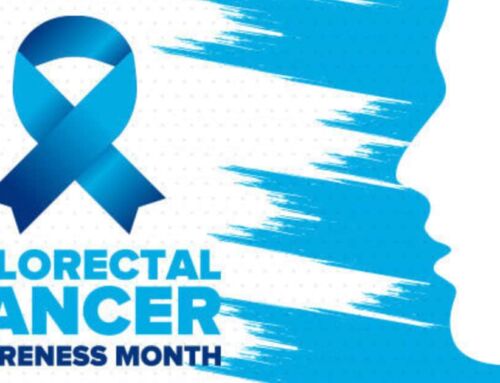Digestive issues like bloating, constipation, diarrhea, and heartburn are uncomfortable symptoms that we all experience at one time or another. But if these symptoms persist for more than a few days or weeks, it’s a sign that you should see a doctor.
When it comes to digestive issues, it’s often in your best interest to make an appointment with a specialist.
This article will discuss what a gastroenterologist is and when to make an appointment for common digestive issues. We’ll also discuss non-invasive procedures that we can perform to diagnose and treat certain conditions. Lastly, we’ll outline how you can prepare for your gastroenterologist appointment.
What Is a Gastroenterologist?
Gastroenterologists (or GI doctors) are doctors that specialize in treating digestive problems and liver issues. They receive extensive training in all areas of the digestive system. This includes the gastrointestinal tract, liver, gallbladder, and pancreas.
On top of four years of medical school and three years of internal medicine residency, gastroenterologists also complete three years of gastroenterology fellowship.
Internal medicine doctors and primary care physicians complete a three-year residency after medical school that enables them to treat a wide variety of health problems ranging from the common cold to diabetes. However, they do not have the specialized training that gastroenterologists do.
For this reason, gastroenterologists are the best doctors to see for all digestive and liver problems.
Digestive Issues That Need Medical Evaluation
Keep reading to learn more about when you should see a gastroenterologist for digestive issues.
Rectal Bleeding
Rectal bleeding is never normal and should always be evaluated by a doctor. Often, rectal bleeding can be a sign of hemorrhoids. But it can also have more severe causes like colon cancer. You should see a doctor to rule out any underlying causes.
If you experience light rectal bleeding for one to two days and do not have any other symptoms, you should make an appointment with a gastroenterologist. If you experience rectal bleeding several times a day with pain, lightheadedness, or shortness of breath, you need to go to the emergency room.
Symptoms of rectal bleeding may include:
- Bright red blood on the stool
- Dark blood in the stool
- Black, tarry stool
If vomit contains bright red blood or looks like coffee grounds, these can indicate upper GI bleeding. Mentioning this distinction since this information should be shared with your doctor when being evaluated.
Heartburn
Most people experience heartburn from time to time. This is usually harmless. However, if you experience heartburn that persists for more than a couple of weeks, you should see a gastroenterologist.
Heartburn occurs when the lower esophageal sphincter, a muscular valve that separates the stomach and esophagus, doesn’t shut properly. This causes the stomach contents to flow backward into the esophagus. Over time, the stomach acid and digestive enzymes that break down food can damage the lining of the esophagus.
If left untreated long-term, heartburn can progress to Barrett’s esophagus or esophageal cancer.
Symptoms of heartburn may include:
- Burning chest pain
- Burning throat pain
- Taste of acid in the back of your throat
Abdominal Discomfort
If you experience new abdominal pain with no known cause, you should see a doctor or have abdominal pain that worsens over time. Sometimes, abdominal discomfort can be a sign of a more significant medical problem.
Abdominal discomfort may include:
- Cramping
- Sensation of pressure
- Burning pain
- Aching
- Stabbing pain
Abnormal Bowel Movements
A gastroenterologist should evaluate abnormal bowel movements that persist for more than a few days. The cause for certain bowel changes may be as simple as diet and lifestyle choices. But it can also be a sign that something more significant may be going on.
If you notice abnormal bowel changes, keep track of these changes by writing them down. This information can help your doctor pinpoint the cause of your issue.
Signs of abnormal bowel movements may include:
- Recurrent diarrhea
- Recurrent constipation
- Black stools
- Bloody stools
- Narrow or pencil-thin stools
You can learn more about what bowel movements indicate about our health by reading my article… What Your Poop Says About You.
Trouble Swallowing
A doctor should always evaluate swallowing problems. In some cases, trouble swallowing may be a sign of a physical obstruction or a neurological problem.
A gastroenterologist can determine the cause of your symptoms and come up with a treatment plan. If caught early, a GI doctor can successfully treat most causes of swallowing problems. If you’re having trouble swallowing, don’t wait to make an appointment.
Signs of swallowing difficulty may include:
- Gagging or choking
- The sensation of food or liquid stuck in the throat or chest
- Regurgitation of food in the mouth
- Weight loss
Hemorrhoids
Hemorrhoids are swollen or inflamed veins in the rectum that can cause pain and discomfort. Usually, hemorrhoids are easy to treat. If you have hemorrhoids that don’t resolve on their own, you should see a gastroenterologist.
Depending on the type of hemorrhoid, gastroenterologists can provide different forms of treatment to help you get rid of them. This usually starts with diet and lifestyle changes. If this fails to work, there are more permanent solutions available.
Another treatment option for internal hemorrhoids only is hemorrhoid banding. This is a typically painless procedure that places a rubber band around the hemorrhoid, causing it to shrink and fall off.
Unexplained Weight Loss
Unexplained weight loss can have many potential causes, some more serious than others. If you notice weight loss with no known cause, you should see a gastroenterologist. A gastroenterologist can complete a full workup to find the root cause of your problem.
Bloating
Bloating is a common digestive problem that gastroenterologists treat. The causes of bloating can range from certain behaviors like chewing gum or eating too fast to medical conditions like lactose intolerance.
If you’re experiencing excessive bloating for more than a few weeks, you should make an appointment with a gastroenterologist.
Symptoms of bloating may include:
- Abdominal distention
- Gas
- Belching
- Cramps
- Constipation
Colon Cancer Prevention
You should see a gastroenterologist for colon cancer screening to reduce your risk of colon cancer. The recommended age to begin screening is now 45. This means that all individuals age 45+ should get screened for colon cancer.
Previously, the American College of Gastroenterology recommended individuals begin colon cancer screening at age 50. However, they recently lowered the recommended age to 45 because more and more younger adults are experiencing colon cancer. Getting screened earlier can improve colon cancer detection rates in younger adults and result in better treatment outcomes.
The key to beating colon cancer is early detection. The five-year survival rate for colon cancer is 91% if caught in its early stages.
Symptoms of colon cancer may include:
- Abdominal pain
- Blood in the stool
- Constipation
- Diarrhea
- Change in bowel habits
- Rectal bleeding
- Incomplete emptying
- Narrow or pencil-thin stools
- Fatigue
- Unexplained weight loss
However, these symptoms may not appear until the later stages of the disease. Unfortunately, late-stage colon cancer is much harder to treat. Getting screened for colon cancer can save your life.
Exams Gastroenterologists Use to Evaluate Symptoms
Gastroenterologists can perform many non-invasive procedures to diagnose and treat digestive problems. We’ll highlight these procedures below.
Colonoscopy
A colonoscopy is a procedure that examines the rectum and large intestine by inserting a long, flexible tube with a camera (colonoscope) into the rectum while you are under anesthesia. Your doctor can pass specific instruments and tools through the colonoscope to sample and remove abnormal tissues.
A colonoscopy is the number one colon cancer screening test because it is the only test that can diagnose and treat colon cancer. During a colonoscopy, your doctor can remove precancerous polyps to prevent them from turning into cancer.
This procedure can also determine the cause of symptoms such as:
- Abdominal pain
- Diarrhea
- Blood in the stool
What’s more, a colonoscopy can diagnose conditions like ulcerative colitis, Crohn’s disease, and diverticular disease.
EGD (Upper Endoscopy)
An EGD (upper endoscopy) is a procedure that examines the esophagus, stomach, and first part of the small intestine. This procedure involves passing a small, flexible tube (endoscope) with a camera through the mouth while you are under anesthesia.
An upper endoscopy can help detect the following digestive conditions:
- Gastroesophageal reflux disease (GERD)
- Barrett’s esophagus
- Esophagitis
- Esophageal cancer
- Gastric cancer
- Anemia
- Celiac disease
Anoscopy
An anoscopy is a procedure that examines the anus and rectum with a short disposable speculum called an anoscope. This procedure doesn’t require any sedation.
You may need an anoscopy if you experience symptoms such as:
- Blood in the stool
- Rectal bleeding
- Itching around the anus
- Painful bowel movements
- Small lumps around the anus
An anoscope can diagnose the following conditions:
- Anal cancer
- Rectal cancer
- Tears in the anus or rectum
- Rectal polyps
- Anal fissures
- Hemorrhoids
Small Bowel Capsule Endoscopy
A small bowel capsule endoscopy uses a tiny camera the size of a pill to examine the small intestine. Once swallowed, the pill camera travels through the gastrointestinal tract and takes about 50,000 pictures. This creates a high-definition video of the small intestine. The pill camera passes naturally in your stool and then is mailed back in for a review of the video.
This procedure can evaluate symptoms such as:
- Abdominal pain
- Blood in the stool
- Diarrhea
- Unexplained weight loss
A small bowel capsule endoscopy can also diagnose conditions including:
- Crohn’s disease
- Cancer
- Anemia
Breath Testing
Breath testing can diagnose digestive conditions by measuring the number of certain gases in your breath. Typically, a breath test takes around 15-90 minutes.
Your doctor may recommend breath testing if you experience the following symptoms:
- Abdominal discomfort
- Bloating
- Gas
- Diarrhea
- Constipation
There are five types of breath tests that each diagnose a different condition, including:
- Helicobacter pylori infection
- Small intestinal bacterial overgrowth (SIBO)
- Lactose intolerance
- Fructose malabsorption
- Sucrose malabsorption
Prepare for your Gastroenterologist Appointment
Don’t be shy… gastroenterologists specialize in everything stomach and colon related, so my staff and I treat patients every day with conditions that can be somewhat unpleasant or embarrassing to discuss. I can assure you that we’ve heard almost everything and that we treat all patients with discretion and respect.
That being said, the more information you can provide your gastroenterologist relative to your digestive conditions, the better care they can provide.
Here is a list of things that your gastroenterologist would like to know:
- Let us know if you have a family history of colon cancer or other digestive diseases like inflammatory bowel disease.
- If the color or consistency of your stools (poop) has changed, please describe this to the best of your ability.
- Describe your diet and if you have had any changes within the timeframe your symptoms started
- Bring with you any copies of records of prior workup or studies that have been done for us to review
- Describe your symptoms the best you can, even if it feels like an embarrassing topic to talk about- the more you can describe, the more we can help
Do I need a Referral to See a Gastroenterologist in San Antonio?
The short answer is… no, you do not. Suppose you feel you are having symptoms related to your gastrointestinal tract and think you would benefit from seeing a gastroenterologist. In that case, you do not need a referral from your primary care physician unless you have an HMO insurance policy. All you need to do is call my office at 210-615-8308 or click the request an appointment tab on my website, and we will call you.
If you have gastrointestinal symptoms, don’t just live with them; see someone. The majority of the time, we can do things to make your symptoms and your life better.




